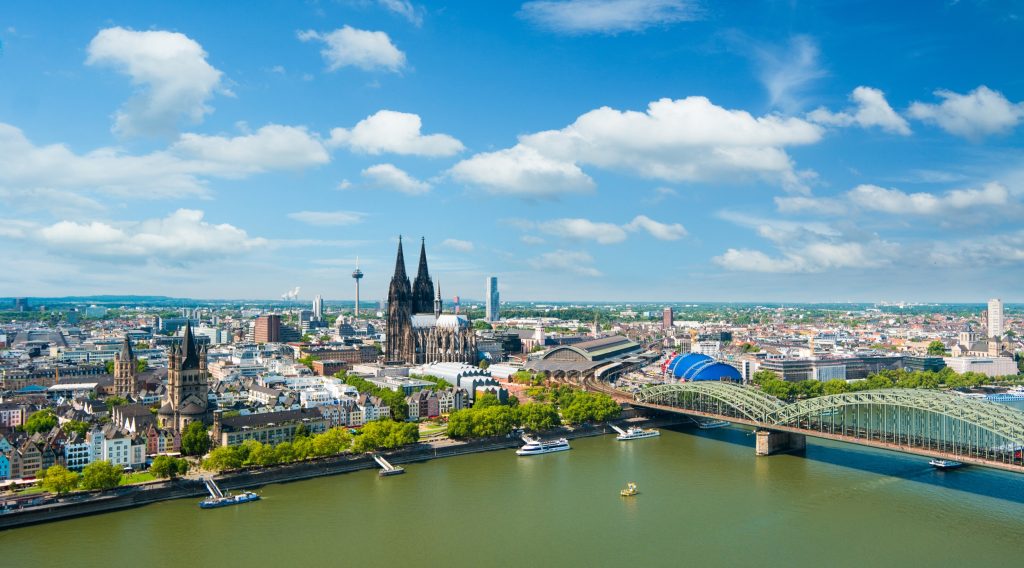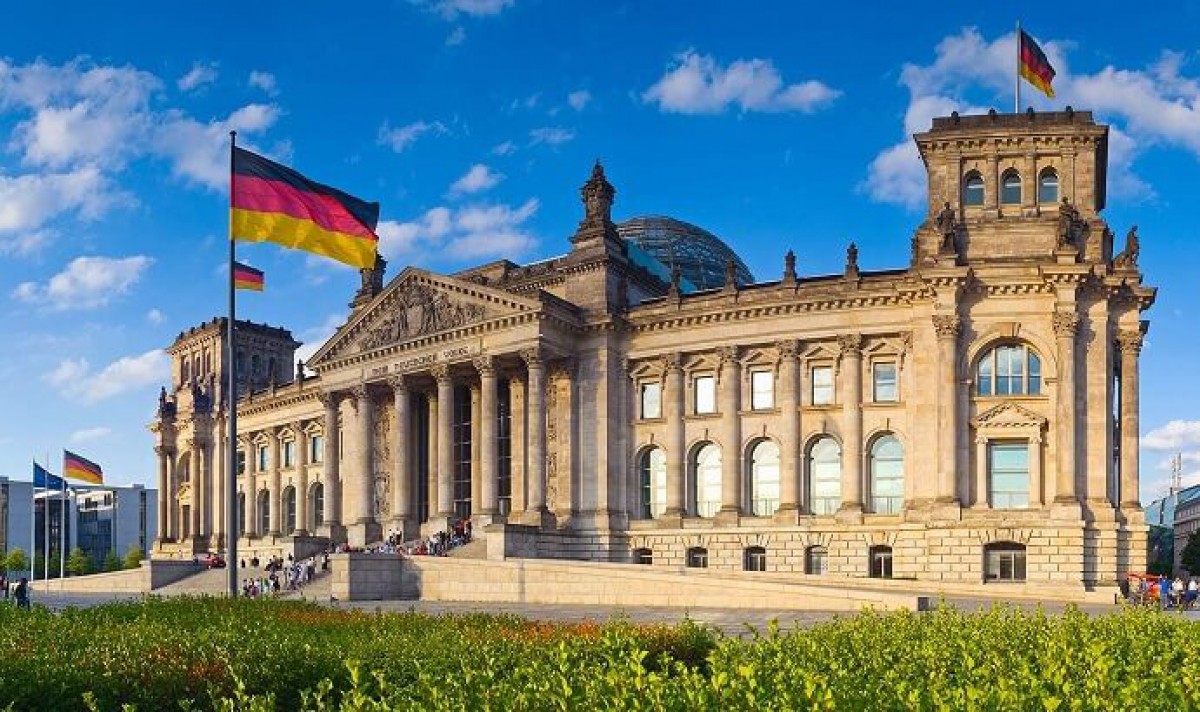Germany, as Europe’s largest and one of the most powerful economies, stands out globally for its advancements in automotive, chemical, engineering, and IT sectors. Attracting numerous foreign professionals every year, Germany offers excellent opportunities for skilled workers. In this comprehensive guide, we provide detailed information about the Germany work permit, working conditions, and key steps to navigate the process seamlessly. You will also find important tips and suggestions to facilitate your journey.
What is a Germany Work Visa?

Obtaining a work permit in Germany allows you to stay long-term and reshape your career in one of the world’s most robust economies. Foreign nationals who wish to work in Germany must apply for a national visa for work purposes. This visa, also known as a long-stay visa, is issued for employment, education, research, and other related purposes.
Types of Germany Work Visas

There are different types of work visas available in Germany, depending on your qualifications and the nature of your employment. These include:
- National Visa (D-Type Visa): This visa is intended for individuals planning to stay in Germany for more than 90 days. It is suitable for those seeking employment or long-term opportunities.
- EU Blue Card: The EU Blue Card is a residence and work permit for highly qualified non-EU citizens who want to work in Germany. It aims to attract skilled workers with university degrees or equivalent qualifications.
The national visa is typically granted based on the specific reason for staying in Germany and usually covers a period ranging from 90 days to one year. After this initial period, it is necessary to obtain a residence permit for longer stays.
How to Obtain a Work Permit in Germany
To acquire a work permit in Germany, you must meet certain criteria. This process differs slightly depending on whether you are an EU citizen or a national of another country.
Key Requirements for a German Work Permit
- Job Offer: Non-EU nationals must secure a job offer from a German company before applying for a work visa. The job offer must be confirmed by the German Federal Employment Agency.
- Qualified Skill Set: Germany is in particular need of qualified workers in fields such as engineering, IT, healthcare, and sciences. Therefore, those with a higher education degree or vocational training certification are preferred.
- Language Proficiency: Applicants are usually expected to have a basic understanding of German (typically B1 level). However, English-speaking roles are also available, particularly in the IT and engineering sectors, where English proficiency might be sufficient.
Step-by-Step Process to Apply for a Germany Work Visa
- Secure a Job Offer: The first step is to get a job offer from a company in Germany. This is essential for starting your visa application process.
- Apply for the National Visa: Submit the required documents at the German embassy or consulate in your home country. This visa will initially allow you to enter Germany to start your employment.
- Residence Permit Application: Upon arrival in Germany, apply for a residence permit to continue your stay and work long-term.
Working Conditions in Germany
Working Hours and Leave
The standard working week in Germany consists of around 34.8 hours, with a maximum legal limit of 48 hours. Employees cannot work more than six hours consecutively without taking a break. Workers are entitled to 20 days of paid leave annually if they work five days per week and 25 days if they work six days.
Germany also observes official holidays that differ between federal states, ranging from 9 to 12 public holidays throughout the year.
Salaries and Living Costs in Germany
Living costs in Germany vary depending on the city, with major cities like Munich, Frankfurt, and Berlin being more expensive than smaller towns. Here are some average monthly living expenses to consider:
| Expense Category | Average Cost (EUR) |
|---|---|
| Rent (without utilities) | 820 |
| One-bedroom apartment (city) | 873 |
| One-bedroom apartment (outside) | 627 |
| Gym Membership | 31 |
| Public Transportation Ticket | 2.80 |
| One liter of gasoline | 2.19 |
| One liter of milk | 0.93 |
| Loaf of bread | 1.66 |
| One kg of potatoes | 1.56 |
| One kg of rice | 1.95 |
Benefits of Working in Germany
Working in Germany offers numerous advantages, particularly under the Skilled Immigration Act, which came into effect on March 1, 2020. This act provides skilled workers residing outside Germany with enhanced opportunities to find employment and relocate. Skilled workers moving from countries like Turkey can bring their spouse and children, making it an attractive prospect for families.
The EU Blue Card Scheme: A Fast Track to Settlement
What is the EU Blue Card?
The EU Blue Card is a special residence permit for highly qualified professionals from non-EU countries. Holders of this card enjoy several benefits, such as long-term residency and the opportunity to apply for a permanent settlement permit after two to three years, provided they meet the necessary criteria.
EU Blue Card Application Requirements
- Application Forms: Two completed application forms in German, signed by the applicant.
- Passport and Photos: Two recent passport-sized photos and a valid passport.
- Professional Qualifications: Your foreign degree must be recognized in Germany or be equivalent to a German university qualification.
- Employment Contract: The contract should include employer details, work conditions, and annual gross salary.
- Health Insurance: Valid travel health insurance covering the period from your entry into Germany until the start of your employment.
Entrepreneurial Opportunities in Germany
Germany is not only a great destination for skilled employees but also for entrepreneurs. By setting up your business in Germany, you can participate in its thriving economy and expand into high-growth sectors.
Life in Germany: Culture, Integration, and Quality of Life
Quality of Life and Living Standards
Germany is well-known for its high quality of life, combining efficient public services, excellent healthcare, and a diverse cultural scene. Cities like Berlin, Munich, and Frankfurt offer vibrant lifestyles with a range of activities, from arts and culture to sports and outdoor events.
Integration Support for Expats
Germany has a structured system to help expats settle in. From language courses to social integration programs, the country ensures that new residents feel welcomed and become part of the community.
Education and Family Life
For those moving with families, Germany offers a highly regarded public education system and numerous international schools. The healthcare system is also top-notch, providing comprehensive care to residents and their families.
Advantages of the Skilled Immigration Act for Non-EU Nationals
The Skilled Immigration Act provides expanded opportunities for qualified professionals outside the EU to move to Germany. Some key features of this law include:
- Relaxed Entry Requirements: Skilled workers no longer need to give priority to German or EU applicants for certain positions.
- Recognition of Vocational Qualifications: Non-academic professionals can also benefit, particularly those in industries such as healthcare, IT, and construction.
- Opportunity for Family Reunification: Skilled professionals can bring their family members, provided they meet specific financial and housing requirements.
Final Thoughts and Recommendations
Working in Germany can be a major milestone in your career, offering competitive salaries, a high standard of living, and numerous opportunities for professional growth. Whether you are considering moving for employment or entrepreneurship, Germany provides a welcoming environment with ample support systems.
To get started, ensure you secure a job offer, learn the basics of the German language, and prepare your documents for the visa application. If you are considering the EU Blue Card, check if your qualifications align with the requirements for highly skilled workers.

